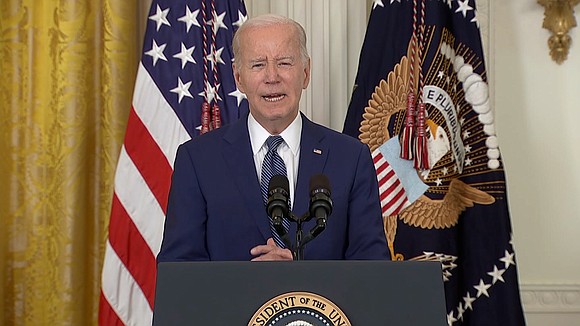German voters elect far-right AfD candidate to lead district for the first time
CNN/Stylemagazine.com Newswire | 6/26/2023, 1:40 p.m.

Originally Published: 26 JUN 23 12:38 ET
By Inke Kappeler and Sana Noor Haq, CNN
(CNN) — A candidate from the far-right Alternative for Germany (AfD) party won a local leadership post for the first time on Sunday in a resounding victory for a group whose anti-migrant, Euroskeptic and anti-Muslim agenda is under surveillance by German authorities.
The AfD’s Robert Sesselmann triumphed over incumbent Jürgen Köpper of the conservative Christian Democratic Union (CDU) party to become district administrator of Sonneberg, in Thuringia, central Germany, at the weekend.
Sesselmann was elected with 52.8% of the vote, while Köpper gained 47.2%, according to the Thuringian State Office for Statistics.
Opposition lawmakers sounded the alarm on Sesselmann’s win, saying it threatened the political center and signaled a rise in populism among the electorate.
Köpper told reporters on Sunday that “the excruciating policies of the German government” led to the AfD’s success.
“Unfortunately, it has not been a personal election as state elections have always been, it has become a pure party election,” he said.
German Chancellor Olaf Scholz’s Social Democratic Party’s chairwoman Saskia Esken called the AfD victory in Sonneberg a “political dam-break” on Monday.
Chairwoman of the Green Party, Ricarda Lang, tweeted that the results were a warning to all democratic parties. “The result of the state election in Sonneberg is dismaying,” Lang said.
Mario Czaja, secretary general of the CDU, tweeted on Sunday that the elections in Sonneberg were “a bitter result for the political center.”
However, government spokesman Steffen Hebestreit said Germany maintains a strong democracy, adding that geopolitical factors including Russia’s invasion of Ukraine, inflation, energy prices, climate transformation and the European migrant crisis meant more cross-party “discussions” needed to be conducted “objectively.”
“Dividing, setting one group against another, or blaming migrants for something for which they cannot be held responsible at all, is not a recipe that will lead this country to a good future,” Hebestreit said on Monday.
‘Only the beginning’
German officials have ramped up scrutiny of the AfD in recent years as it cements its status as the country’s most successful far-right party since World War II.
In March 2021, it was formally placed under surveillance by Germany’s BfV domestic intelligence service on suspicion of trying to undermine Germany’s democratic constitution – making it the first party to be monitored this way since the Nazi era crumbled in 1945.
Earlier this year, BfV labeled the party’s youth wing, whose members are as young as 14, as “extremist” after four years of investigation.
Even though the move doesn’t apply to parent party AfD, it revealed a growing segment of young Germans united by extreme views on migration and anti-feminism.
Dresden-based political scientist, Hans Vorländer, said Sunday’s results indicate that trust in Berlin “is at an almost historical low.”
“Unless there is a dramatic change in political opinion, next year’s state and local elections could turn into a triumph for the AfD,” Vorländer told CNN on Monday, adding that winning an election would not necessarily mean participation in regional governments, as the other parties would then try harder to form coalitions.
“The chaos of the German government is contributing to a very poor mood; trust in the government is at an almost historic low. Right-wing ideas are also strongly rooted among the population of Saxony and Thuringia, much more so than in western Germany,” he added.
“While this victory was a symbolic victory for AfD, in next year’s state elections in the eastern German states, the AfD could win a large number of seats; at the national level, 25% is conceivable.”
AfD co-chairwoman Alice Weidel tweeted that Sesselmann had made history by having been elected first AfD-district administrator, adding that this victory was “only the beginning.”



